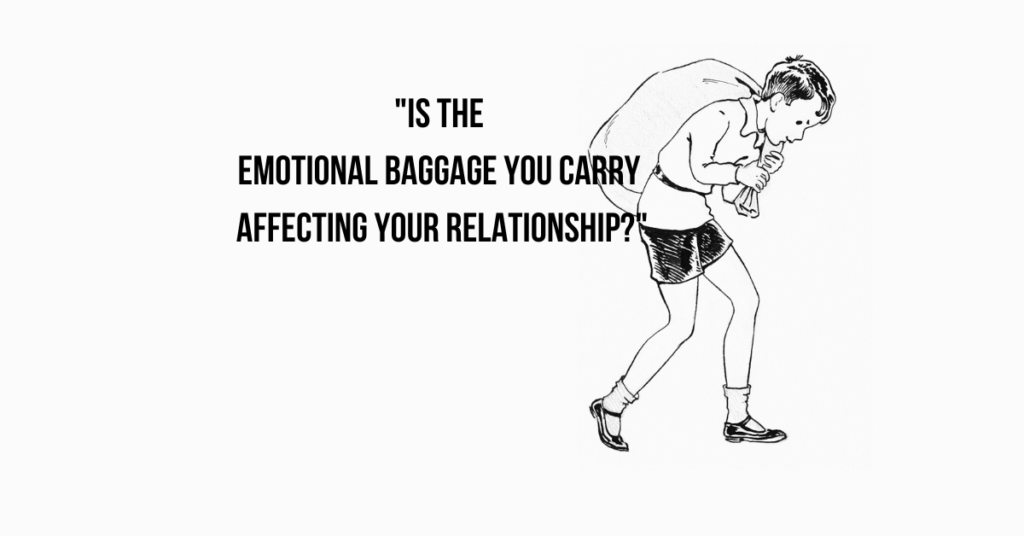
What is Emotional Baggage?
Emotional baggage or emotional backpacks are used to describe all of the unresolved emotional issues; traumas and stresses from the past (and present) that occupy your mind and influence your present behaviour in myriad negative ways.
Emotional baggage can be many things, including:
- Misinformation about coping with grief and loss
- Poor habits we developed in past relationships
- Well-intentioned communication that went wrong
Much like lugging a massive suitcase through a busy airport, carrying excess emotional baggage can be exhausting or even crippling. It can even have physical side-effects (high blood pressure, headaches, insomnia, depression, etc.)
It also feels like stepping back in time, emotionally. Rather than reacting to a situation like a mature adult, we may react like a younger, childish version of ourselves. Choosing (and learning) to drop our baggage and moving on as adults can help us become stronger, leading to a more balanced life.
6 Signs Emotional Baggage Is Sabotaging Your Relationships
As adults, emotional baggage probably can have the biggest effect on our romantic relationships. Nothing brings out our worst demons than being vulnerable in love. Here are six clear signs you might have emotional baggage and it might be sabotaging your love life:
- Emotional distance
Unresolved emotional baggage can stop you from nurturing intimacy. You can build walls and defense mechanisms that might make it challenging to find connection and enjoy long-lasting relationships.
2. Commitment issues
Commitment issues actually involve more than just the romantic area of your life. Perhaps it’s also hard for you to commit to a job, a place, or anything that requires you to put down roots.
When it comes to relationships, commitment issues might be caused by “attachment insecurity,” which can manifest in three ways:
a. Constant fear that you might get hurt
b. Not wanting to depend on anyone
c. Constant anxiety about being abandoned
3. Serial-dating
Jumping from one relationship to the next, with very little time in between. You may also find it difficult to be single, or engage in long-term relationships.
4. Paranoia
One of the worst signs of deep emotional baggage is having paranoia that every relationship will lead to pain or that you will be left alone. It’s normal to feel vulnerable when you give your heart to someone. However, emotional baggage can lead you to believe that no one is trustworthy enough to truly love you. As a result, you might self-sabotage your own relationships. You might even drive away any potential of a meaningful relationship before it even begins.
5. Projection
Most of us carry our own insecurities to any new relationship. That’s part of being human. However, emotional baggage can sometimes make us “project” our own assumptions on to our partners. According to therapist and relationship coach Monika Hoyt, projection is the “tendency to disown the qualities we don’t like about ourselves and see them in others”.
6. Comparison
Comparing past relationships to your new one could be understandable. Someone else is filling the role of your ex, so a little comparison is natural. But every relationship is different, and constant comparison can lead you to focus on the past and not notice the good things in the new relationship. This cannot just affect how you feel in a relationship, but make the other person feel a range of complex emotions and even question the value of the relationship.
It is important that not all of will experience all these things in every relationship. But it helps to be aware of them, so we can learn the healthy habits we need to build a new relationship, or make an existing on stronger.




